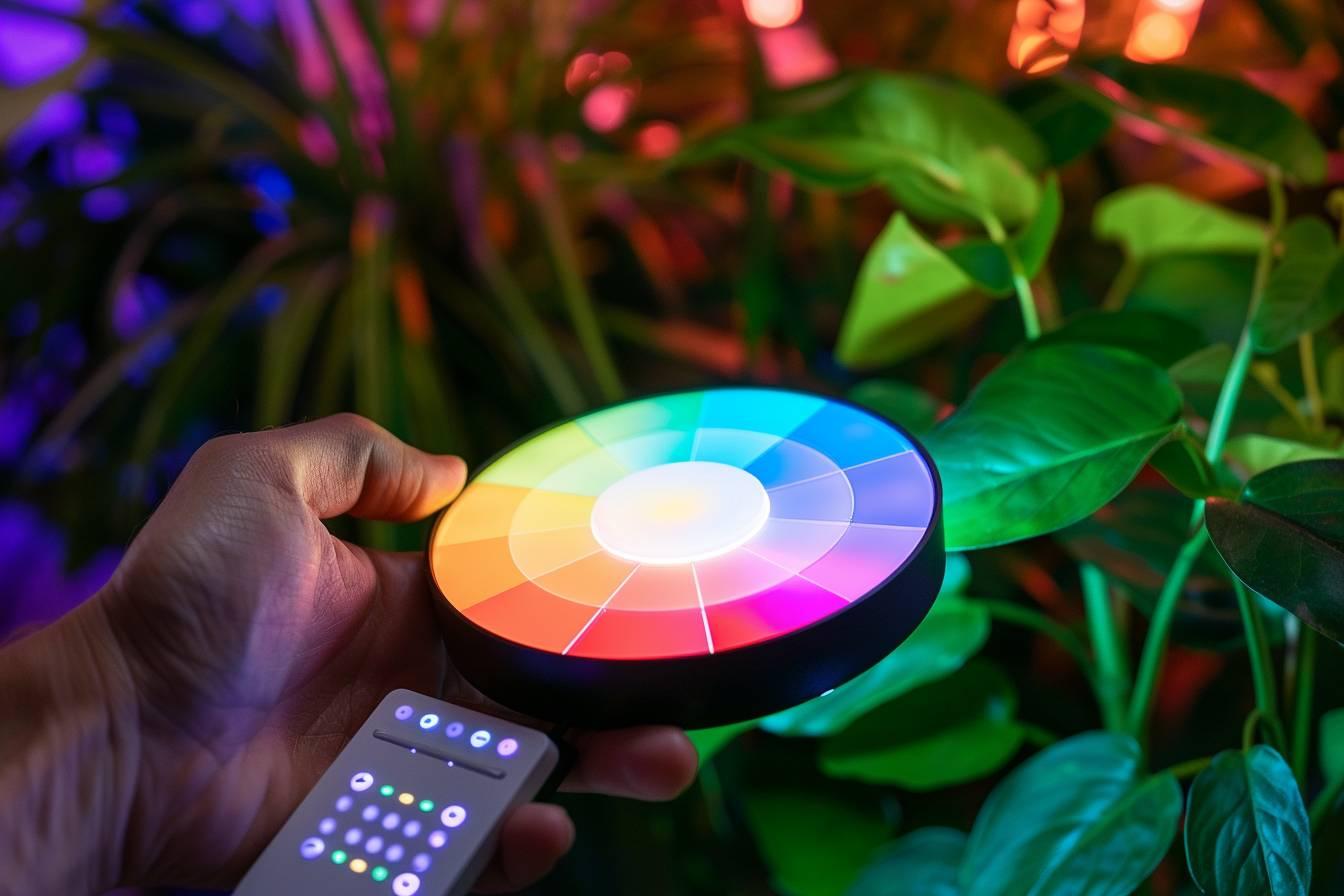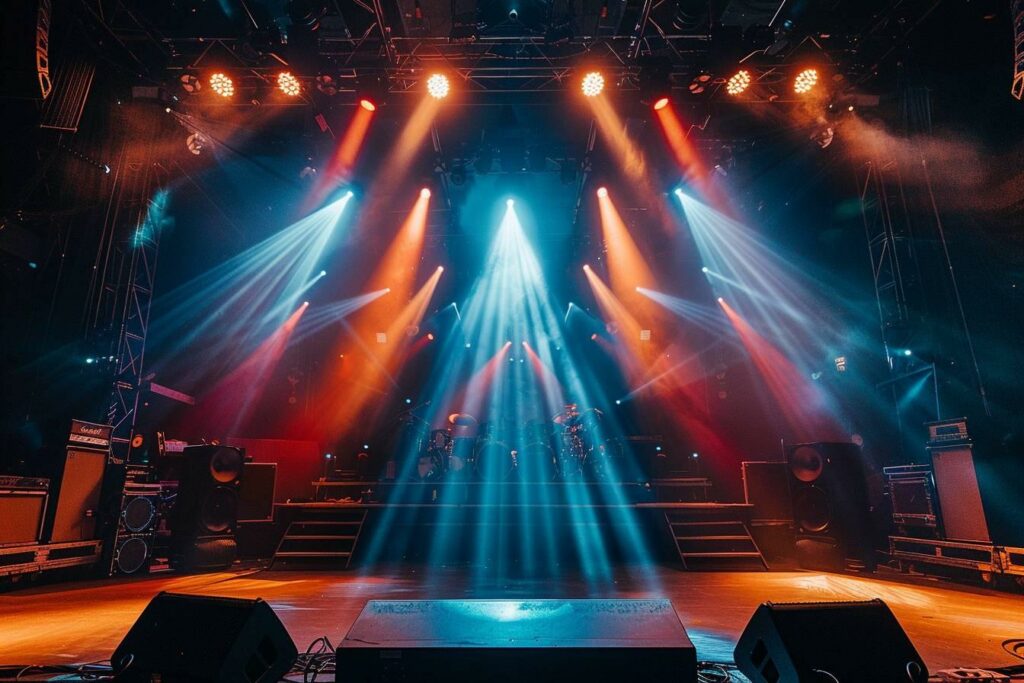Stage floodlights are essential for creating a captivating atmosphere at shows and events. These sophisticated lighting devices can transform a simple performance into a striking visual experience. Whether for a concert, a play or a special event in a picturesque location, choosing the right spotlight can make all the difference.
The different types of spotlight to illuminate your stage
There is an impressive variety of stage floodlights, each designed to meet specific needs. Fresnel spotlights, for example, are renowned for their narrow, crisp white beam, ideal for highlighting specific areas. Plano-convex (PC) projectors, on the other hand, offer well-distributed light and a wide choice of colors, perfect for creating a variety of moods.
For those looking for more targeted lighting, cut-out spotlights are a must. Their concentrated, sharply contoured flux allows light to be sculpted with precision. Tracking spotlights, meanwhile, are essential for following artists on the move, ensuring that they always remain in the spotlight.
Finally, PAR LED spotlights and LED spotlights in general represent the future of stage lighting. Their versatility and energy efficiency make them increasingly popular choices for show business professionals.
- Fresnel projectors: intense, precise luminosity
- Plano-convex projectors: versatility and richness of color
- Cutting projectors: precise beam control
- Tracking spotlights: dynamic tracking of performers
- PAR LED and LED spotlights: energy savings and versatility
Key features for optimum stage lighting
When choosing a stage spotlight, there are several technical features to consider. Light output, measured in watts or lumens, determines lighting intensity. The beam’s angle of aperture is vital in defining the area covered by the light. Color temperature, expressed in Kelvin, influences the overall mood of the scene.
The color options available, whether white, RGB or RGBW, offer an extensive creative palette. Control modes, such as DMX or remote control, enable precise lighting management. For outdoor applications, IP protection is a factor not to be overlooked.
| Features | Importance | Impact on performance |
|---|---|---|
| Light output | High | Determines visibility and visual impact |
| Opening angle | Medium | Affects lighting coverage and precision |
| Color temperature | High | Influences mood and atmosphere |
| Color options | High | Offers creative flexibility |
| Control modes | Medium | Facilitates integration and programming |

A practical guide to choosing and using your stage lights
Choosing a stage projector depends on a number of factors. First, consider the type of event or show for which it will be used. The size of the stage or space to be lit is also a determining factor. The budget allocated and the features required will also guide your selection.
It’s crucial to ensure the projector’s compatibility with your existing system. Accessories such as filters, brackets and DMX cables should not be overlooked for a complete and functional installation.
To get the most out of your projectors, here are a few practical tips:
- Plan your installation taking into account the architecture of the stage.
- Test different configurations to find the optimum lighting solution
- Use control consoles for precise lighting effects management
- Consider regular maintenance to ensure the longevity of your equipment
- Train your team in the use of spotlights to maximize their potential
By mastering these technical and practical aspects, you’ll be able to create memorable visual experiences, whether for a small local theater or a large outdoor festival.
The bright future of LED projectors in the entertainment industry
LED spotlights are transforming the stage lighting industry. Their advantages are many and significant. First and foremost, their energy efficiency means substantial savings on operating costs. Their long service life, often in excess of 50,000 hours, significantly reduces maintenance and replacement requirements.
The color versatility offered by LEDs is a major asset for lighting designers. With the ability to produce an almost infinite range of shades, these projectors open up new creative perspectives. Also, unlike traditional lamps, LEDs give off very little heat, improving comfort on stage and reducing the risk of overheating.
The compactness of LED spotlights is another significant advantage. It makes them easy to transport and install, particularly useful for touring and traveling events. This feature also allows greater flexibility in the design of sets and lighting installations.
As LED technology continues to evolve, we can expect constant improvements in terms of light quality, efficiency and functionality. The growing integration of intelligent control systems and wireless connectivity promises even more exciting possibilities for the future of professional stage lighting.

